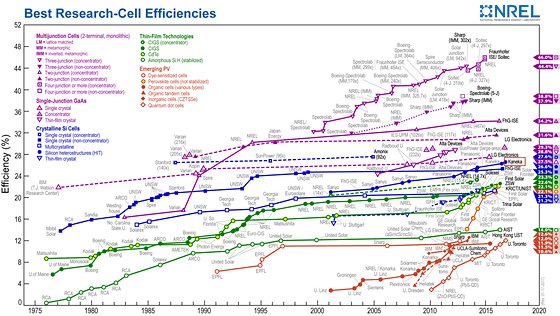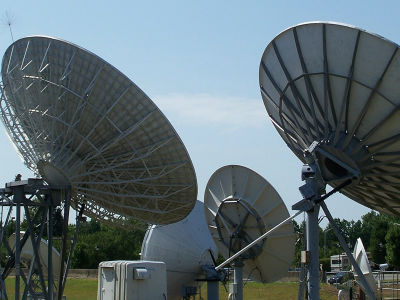Japan's solar cell renews world best record of conversion efficiency and expects to reduce power generation cost

Based in OsakaKaneka CorporationA paper on solar cells with a power efficiency of 26.6% developed by Nature Energy has been released and realized the world's highest conversion efficiencyNational Renewable Energy Laboratory(NREL) certified.
Silicon heterojunction solar cell with interdigitated back contacts for a photoconversion efficiency over 26%: Nature Energy
http://www.nature.com/articles/nenergy201732
English company develops a solar cell with record-breaking 26% + efficiency | Ars Technica UK
https://arstechnica.co.uk/science/2017/03/japanese-company-develops-a-solar-cell-with-record-breaking-26-efficiency/
New Japanese solar cell is closest to reaching maximum efficiency
https://thenextweb.com/world/2017/03/23/new-japanese-solar-panel-closer-to-reaching-maximum-efficiency/
Although the theoretical value of conversion efficiency of silicon based solar cells making up solar panels is assumed to be 29%, the actual value of the power conversion efficiency of solar cells used for commercial solar panels is mostly 20% or less. Meanwhile, Kaneka, a Japanese chemical company, announced in September 2016 a solar cell with a conversion efficiency of 26.3%, which exceeds the conversion efficiency of 25.6%, which is the world record so far.
20160914 【Kaneka】 World's highest conversion efficiency with crystalline silicon solar cell 26.33%. Pdf
(PDF file)http://www.kaneka.co.jp/service/attachments/pdf/title_pdfs/1921/original/20160914【カネカ】結晶シリコン太陽電池で世界最高変換効率.26.33.pdf?1473811743
After the paper was submitted to Nature Energy, Kaneka's research team showed that the conversion efficiency reached 26.6%, and the results are recognized by the National Renewable Energy Laboratory (NREL).

Although it is an improvement of only a few percent when it is numbered, if the solar cell is installed as a large-scale solar panel, it is expected that a significant reduction in carbon emissions can be expected. It is estimated that solar energy demand will be over 20% by 2050, and Kaneka's solar cells are expected to help cost cutting for private sector.

Kaneka did not mass-produce the developed solar cell for commercial use, and the research team commented, "It takes time to use the new solar cell for commercial solar panels". Meanwhile, Kaneka will continue his research to lower the cost per kilowatt hour of solar cell to $ 0.06 (about 6.67 yen) by 2030.
Related Posts:
in Hardware, Posted by darkhorse_log







